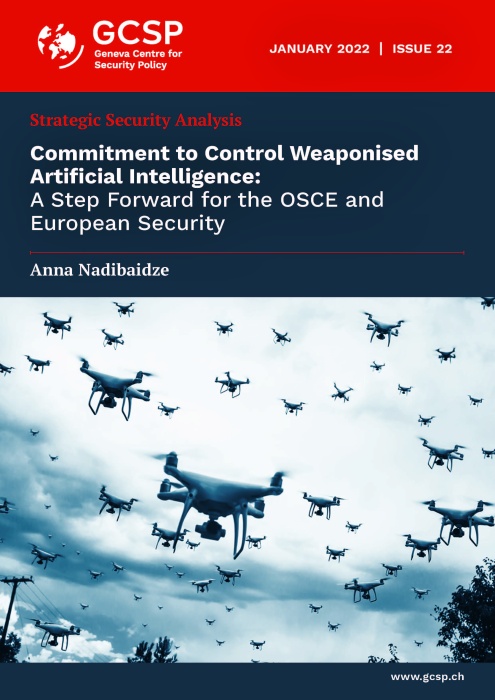Commitment to Control Weaponised Artificial Intelligence: A Step Forward for the OSCE and European Security
18 January 2022
Key points
- The global debate on weaponised artificial intelligence (AI) often focuses on futuristic “killer robots”, which risks overlooking the fact that these technologies are already part of the security landscape.
- Diminishing human control over the use of force and the differences in states’ discourse pose a considerable risk for European security and stability.
- The impact of AI is not inevitable, and states should address this issue through political means, such as a political declaration with a commitment to ensuring human control over the use of force.
- With its inclusive membership, the Organization for Security and Cooperation in Europe (OSCE) can and should become the platform through which its participating States can take a step forward in the global debate on weaponised AI.
Disclaimer: The views, information and opinions expressed in the written publications are the authors’ own and do not necessarily reflect those shared by the Geneva Centre for Security Policy or its employees. The GCSP is not responsible for and may not always verify the accuracy of the information contained in the written publications submitted by a writer.


